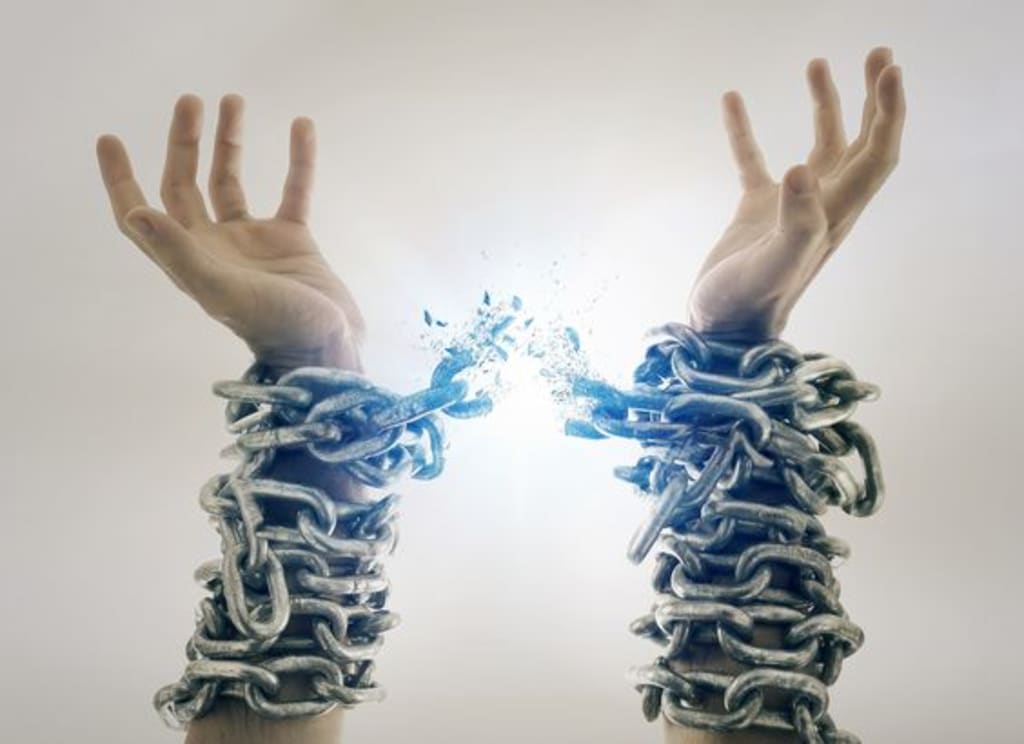Breaking the Chains of Loneliness
Exploring the Loneliness Epidemic, Its Roots, and the Path to Connection

In a world brimming with interconnectedness through smartphones and social media, there exists a peculiar paradox. While we now have the power to reach out to hundreds of people at a moment's notice, an insidious epidemic has crept into our lives — loneliness.
Loneliness is far more than a fleeting emotion; it has solidified into a chronic ailment afflicting a significant portion of the population. In the United Kingdom, a staggering 60% of individuals aged 18 to 34 frequently grapple with loneliness. Across the Atlantic in the United States, a remarkable 46% of the entire population finds itself ensnared in the clutches of loneliness on a regular basis.
This isn't merely a challenge for those who are socially introverted or
User
more than 600 words: In a world where we're more connected than ever, loneliness has become an epidemic. It's a peculiar paradox: the age of smartphones and social media, where we can instantly reach out to hundreds of people, and yet, we're more isolated than ever.
Loneliness is not just a fleeting emotion that everyone experiences from time to time. It's chronic. In the UK, 60% of 18 to 34-year-olds often feel lonely. In the US, 46% of the entire population feels lonely regularly.
It's not about being alone; it's about feeling alone even when you're surrounded by people. Loneliness is a subjective, individual experience. If you feel lonely, you are lonely. This isn't a problem exclusive to those who don't know how to socialize. It affects everyone.
Our brains and bodies are wired for social connection. Loneliness is a biological function, like hunger. It makes us pay attention to our social needs because, in our evolutionary history, being part of a group was vital for survival. Social bonds ensured safety and access to resources.
But the modern world has changed our social landscape. We move away from our home towns, we work longer hours, we spend more time online, and we meet fewer people in person. The mean number of close friends in the US has dropped from 3 in 1985 to 2 in 2011. We sacrifice time with friends because life gets busy with work, romance, kids, and Netflix. And then, loneliness creeps in.
Loneliness is a vicious cycle. It starts with feelings of isolation, leading to tension and sadness. You begin to focus on negative interactions with others, thinking that they don't want you around. This changes your behavior, and you avoid social interaction. The cycle gets more severe and harder to escape each time.
Chronic loneliness has dire consequences. It's among the most unhealthy things we can experience. It ages you quicker, makes diseases deadlier, weakens your immune system, and is as deadly as smoking. When it becomes chronic, your brain goes into self-preservation mode, seeing danger and hostility everywhere.
The good news is that loneliness is a normal feeling. Accept it, acknowledge it, and then work on the causes. Pay attention to your focus, thoughts, and behavior. Are you selectively focusing on negative interactions? Are you assuming the worst about others' intentions? Are you avoiding opportunities for social interaction? Try to open up, give others the benefit of the doubt, and work on exercising your connection muscles.
Loneliness is a complex problem that deserves attention. In a world filled with technology and progress, we need to remember that our fundamental need for connection remains unchanged. We get what we need from each other, and we must build our world based on that. We can combat loneliness by reaching out to someone, even if it's just a small gesture. In doing so, we exercise our connection muscles and make the world a little less lonely.
ChatGPT
Title: "The Modern Loneliness Epidemic: Reconnecting in a Disconnected World"
Subtitle: "Understanding, Conquering, and Thriving in the Age of Loneliness"
In an era of unprecedented connectivity, where smartphones and social media grant us the ability to instantly bridge the gaps between individuals, there's an enigmatic paradox lurking beneath the surface. Despite our capacity to reach out to hundreds of people within the blink of an eye, an alarming epidemic has taken root—loneliness.
This is no transient sentiment that occasionally touches our lives; it's chronic, deeply ingrained in our daily existence. Across the United Kingdom, a staggering 60% of those aged 18 to 34 grapple with persistent loneliness. The situation is no different across the Atlantic, where an astonishing 46% of the entire US population experiences the throes of loneliness on a regular basis.
Loneliness is not merely about the physical state of being alone; it's about the profound sense of solitude even when surrounded by a multitude of individuals. It's a deeply personal, subjective experience, and if you feel lonely, you are, indeed, lonely. This issue transcends stereotypes or misconceptions about social abilities. It affects each one of us.
Deeply embedded within the very core of our brains and bodies is the innate need for social connection. Loneliness, like hunger, is a biological function. It compels us to be attentive to our social needs, a legacy from our evolutionary past where group cohesion was pivotal for survival. These social bonds ensured safety and access to resources, nurturing the essence of humanity.
However, the modern world has drastically altered the landscapes of our social interactions. We migrate away from our hometowns, dedicate longer hours to work, indulge in extended periods online, and encounter fewer people face-to-face. The average number of close friends in the United States has dwindled from 3 in 1985 to a mere 2 in 2011. We often sacrifice quality time with friends amidst the clamor of work, romance, familial responsibilities, and our digital screens, inadvertently paving the way for loneliness to infiltrate our lives.
The loneliness cycle is a relentless one. It commences with the sense of isolation, eventually leading to feelings of tension and sadness. One's focus shifts towards negative interactions with others, perpetuating the belief that you're unwelcome in their presence. This, in turn, molds your behavior, pushing you towards social withdrawal. As the cycle perpetuates, its grip tightens, making escape seem ever more elusive.
The consequences of chronic loneliness are dire, marking it as one of the most detrimental experiences to one's well-being. It accelerates the aging process, amplifies the severity of diseases, weakens the immune system, and ranks alongside smoking as a potential harbinger of death. As the loneliness deepens, the brain shifts into self-preservation mode, sensing threats and hostility in every corner.
But the silver lining in this ominous cloud is that loneliness is a normative emotion. It requires recognition and acknowledgment as the initial steps towards finding a solution. By focusing on your thought patterns, attitudes, and behaviors, you can take steps to alleviate loneliness. Examine whether you're fixating on negative interactions or assuming the worst about the intentions of others. Make a conscious effort to open up, extend trust, and strengthen your connection-building skills.
In a world that's rapidly evolving through technology and progress, the fundamental need for human connection remains steadfast. Our ability to combat loneliness rests in our hands. Even the smallest gestures can rekindle the sparks of human connection and exercise our connection-building muscles, paving the way for a less lonely world.
About the Creator
Fangtingting
🚀 Unleash Your Potential! 🌟
🧠 Mindset | 🌱 Growth Advocate | 🌏 Adventure Seeker
Ready to explore self-discovery and personal growth?Join to navigate life's seas, uncovering keys to success, happiness & ur true potential🌈





Comments
There are no comments for this story
Be the first to respond and start the conversation.